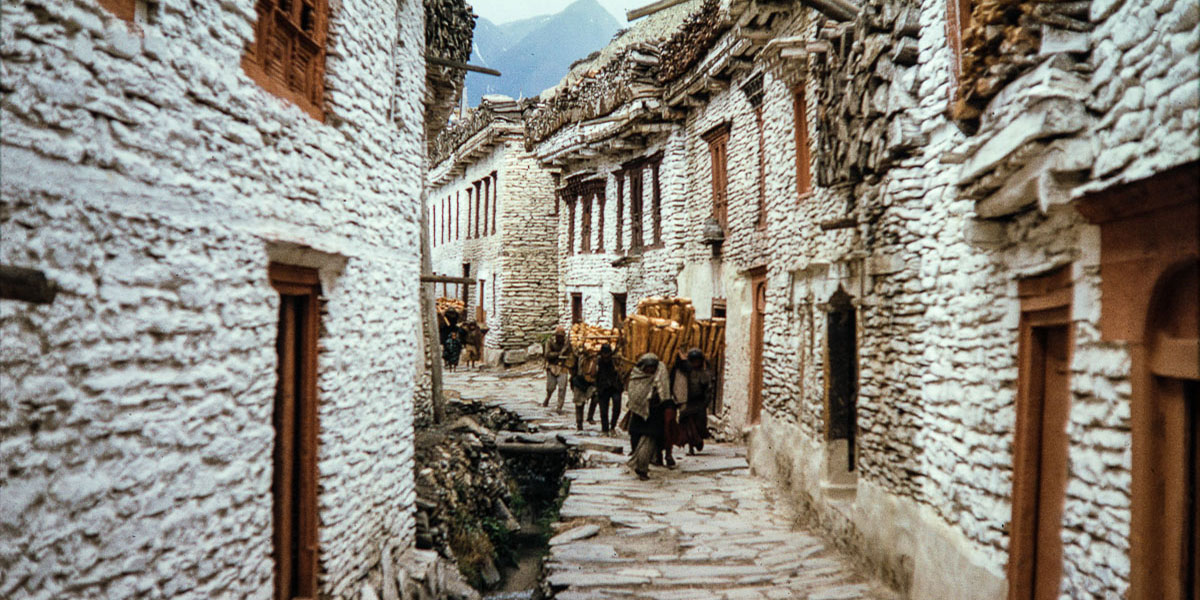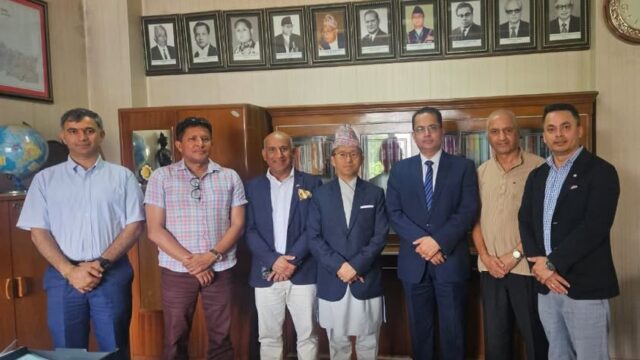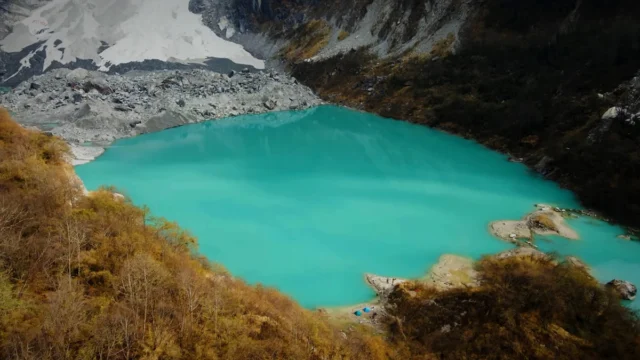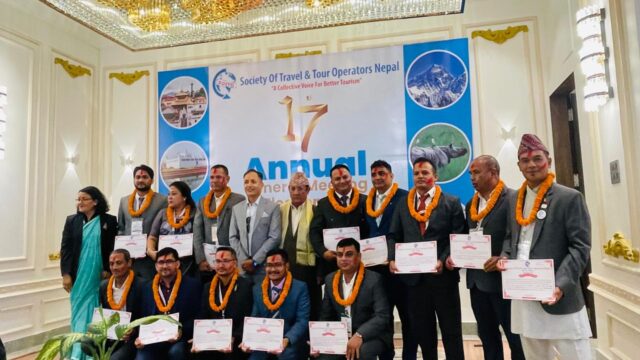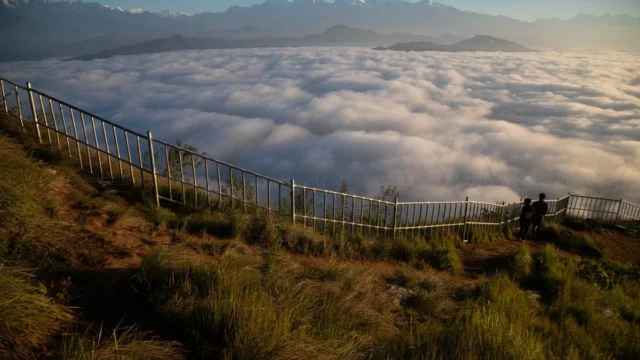The picturesque village of Marpha, located in the Gharpajhong Rural Municipality-2 of Mustang, has gained prominence for its agricultural and cultural tourism potential. The village, renowned for producing juicy and flavorful apples, is highlighted in the popular song sung by Jyoti Gurung, written by the late Basanti Lalchan. The song beautifully captures the charm of Marpha’s apple orchards and scenic beauty.
Marpha is becoming a popular tourist destination, attracting both domestic and international visitors. According to 79-year-old resident Lalprasad Hirachan, the village is a model of agricultural tourism, enriched with culture and natural beauty. “Marpha’s apple orchards, Thakali lifestyle, traditional customs, art, culture, monasteries, and caves have become major attractions for visitors,” Hirachan said. He added that Marpha offers many captivating destinations that extend tourists’ stays and immerse them in the local culture.
The village’s houses, clustered together and painted with red and white clay, feature unique mud roofs, often adorned with firewood, preserving centuries-old traditions. The lush apple orchards by the Kali Gandaki River and the surrounding dry hills create a mesmerizing contrast, making the village even more appealing. The stone-paved inner lanes of Marpha are clean and tidy, adding to its charm.
Sarita Timilsina, a visitor from Kathmandu, shared her experience of walking through the apple orchards during spring and fall, describing it as a refreshing and delightful experience. She also noted the excitement of visiting the locations featured in popular Nepali films “Jerry” and “Kabaddi,” where tourists, dressed in traditional Thakali attire, often take photos and videos. “The song perfectly captured my imagination of Marpha’s beauty,” she said.
Marpha’s rich history is closely tied to the Thakali community, who settled there after migrating from the foothills of Dhaulagiri Himal. The village is home to around 150 families, including both Thakalis and Dalits. The traditional houses in Marpha are known for their economic significance, as the amount of firewood stored on the roof was once considered a sign of wealth.
Marpha is also famous for being the filming location of numerous local and international films. The village features artistic artifacts that reflect the local identity, while the western hills of Marpha display natural artistic beauty. Notable religious sites include the Samteling Monastery and a 300-year-old cliff monastery, which serves as a place of worship to protect against disasters and ensure prosperous harvests.
Another unique attraction is the “Kawaguchi House,” named after Japanese monk and explorer Ekai Kawaguchi, who stayed in Marpha in 1888 while studying Buddhism on his way to Tibet. Locals regard him as a symbol of Nepal-Japan relations.
Marpha is also home to a Temperate Horticulture Development Farm, which researches fruits, vegetables, and food crops. According to local Gyan Panchan, the farm has become a major attraction for tourists interested in agriculture and apple farming. Groups of farmers and agricultural technicians from across the country visit the farm for study tours.
The village is also known for the production of apple brandy, with six distilleries currently in operation. To store apples during off-seasons, the local government, in collaboration with the Agriculture Knowledge Center and the Prime Minister’s Agriculture Modernization Project, has established cold storage facilities.
Efforts to improve infrastructure in Marpha are ongoing. The Gharpajhong Rural Municipality has begun undergrounding electrical and telephone lines and installing streetlights, creating a vibrant atmosphere in the village. The road from Marpha to Jomsom, part of the Kaligandaki Corridor connecting China and India, has recently been blacktopped, making travel more convenient for visitors and mountaineers headed to Dhaulagiri Base Camp.
Plans for the construction of an apple-shaped park, costing approximately NPR 10 million, are underway. The park will serve as an observation point for tourists, offering panoramic views of Marpha village. Additionally, the village is developing stone-paved trails and beautifying the pathways to enhance the overall tourist experience.
With over 20 hotels in operation, Marpha is well-equipped to accommodate visitors. Tourists often purchase local products like apples, dried meat, lentils, and apple brandy from the village’s souvenir shops. Marpha’s blend of agriculture and tourism has become the main source of income for its residents, making it a unique and sustainable destination in Mustang.
